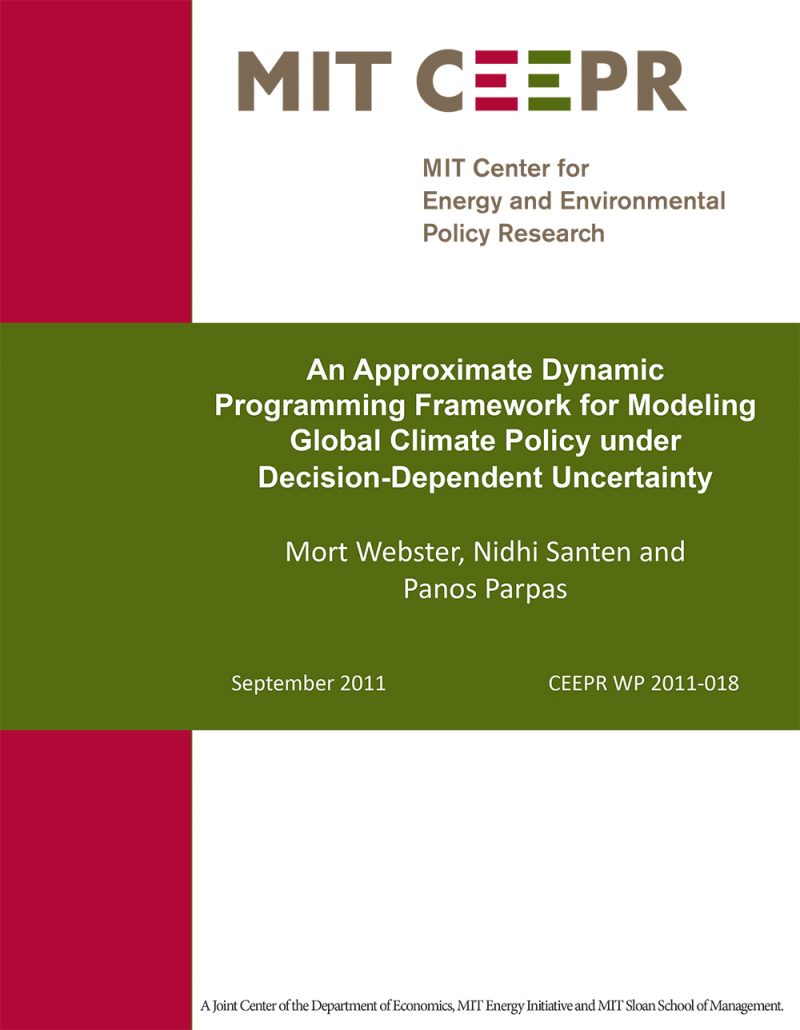An Approximate Dynamic Programming Framework for Modeling Global Climate
Mort Webster, Nidhi Santen and Panos Parpas
September 2011
Analyses of global climate policy as a sequential decision under uncertainty have been severely restricted by dimensionality and computational burdens. Therefore, they have limited the number of decision stages, discrete actions, or number and type of uncertainties considered. In particular, other formulations have difficulty modeling endogenous or decision-dependent uncertainties, in which the shock at time t+1 depends on the decision made at time t. In this paper, we present a stochastic dynamic programming formulation of the Dynamic Integrated Model of Climate and the Economy (DICE), and the application of approximate dynamic programming techniques to numerically solve for the optimal policy under uncertain and decision-dependent technological change. We compare numerical results using two alternative value function approximation approaches, one parametric and one non-parametric. Using the framework of dynamic programming, we show that an additional benefit to near-term emissions reductions comes from a probabilistic lowering of the costs of emissions reductions in future stages, which increases the optimal level of near-term actions.



